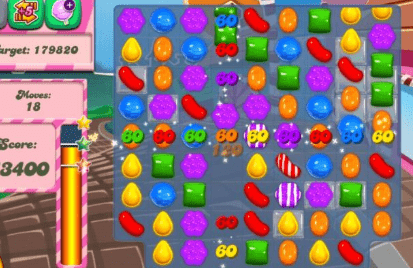
Texas is called the “buckle” of the Bible Belt, and if Texas is the buckle, Dallas is Mecca. We have not just a church, but a mega-church on every corner. Needless to say, this shapes the culture of the area, and it shapes the local church culture as well.
If you were to drive around town this time of year you would see banners, flyers and signs with blinking lights advertising Fall Festivals at nearly every church. These festivals, while not really celebrating the Fall, are advertised as an alternative to Halloween for families, which begs the question, “Should the Church boycott Halloween?”
Somewhere along the way, a significant population of the Church decided Halloween was evil and we should not partake of this pagan holiday. So in an effort to be “in the world, but not of the world” we secluded ourselves from the greater community. Every Halloween, these Christian communities go running to their sanctuaries to escape devil worship in the form of 5 year olds dressed up as Power Rangers. No scheme of the devil could be more insidious than this.
At this point, some well intentioned person would love to tell me how Halloween came into existence. That its origins come most likely from the Celts who believed Halloween was the day when ghost, spirits and fairies were more likely to be seen than any other day of the year.
Point taken. Just remember how we celebrate Christmas: the tree inside with lights, the lights on our house and the stockings above the mantle have pagan roots as well. December 25 was originally a holiday celebrating the god Nimrod in a similar fashion of trees, lights and stockings.
As with every other holiday, the question becomes, “How can the Christian community celebrate it rightly?” In some parts of the Church, October 31 is celebrated as All Hallows Eve, the day leading up to All Saints Day. For others they have reformation parties celebrating Martin Luther’s posting of his 95 Theses to the church doors. While both of these are certainly worthy of being celebrated alongside Halloween, I don’t believe they are the answer to our question.
In our increasingly fast paced society, we see less and less of our neighbors. Whether you live in a high rise in the city or your closest neighbor is a mile down the dirt road on the left, we are more disengaged with society than ever before. As my wife and I gear up for the birth of our first child, go to work, care for our dogs, work out and basically just live life, it becomes increasingly difficult to take time to engage with our neighbors.
Halloween is a once-a-year opportunity where everyone is out and about. Children with parents in tow are running door to door for the next bit of free candy. The cranky old man turns his porch light on and gives out candy by the handful. Not to mention, somewhere in the neighborhood, there is party happening.
What if the Church stopped being afraid of the world on Halloween and began to engage it?
There is a church community I deeply love, who has redefined how they interact with Halloween. Instead of retreating to the shelter of their building or their homes, they engage with their neighborhoods. Their children get dressed up (because it’s fun) go door to door asking for candy, (after all, candy—other than tootsie rolls—is delicious) and sit on their front lawns talking with their neighbors. They have decided that Halloween is not just another day, rather it is the one day a year when all of their neighbors are out in the streets. Therefore, they have the unique opportunity of interacting with everyone.
A family who just began attending our home group throws a Halloween block party every year for the kids on their street. Infants to teenagers show up on their front lawn to play games, get candy and hear the Gospel. I have friends who throw a rocking Halloween party every year, and pack someone’s apartment to the breaking point. They provide a space for their friends to partake in conversation with one another, which inevitably leads to relationship.
If you feel convicted that you shouldn’t celebrate Halloween, you certainly don’t have to. But perhaps you should reconsider how you can use the opportunities the holiday provides to reach others. If nothing else, Halloween is a day designed by our culture to engage with our neighbors. Perhaps instead of condemning the “evils” of Halloween, or even simply turning off the front porch light on October 31, you should consider giving out candy and chatting with your neighbors or inviting everyone to a party.
Engage with your community. Who knows, you may have the joy of watching the resurrected Jesus bring those who are dead to life.






















